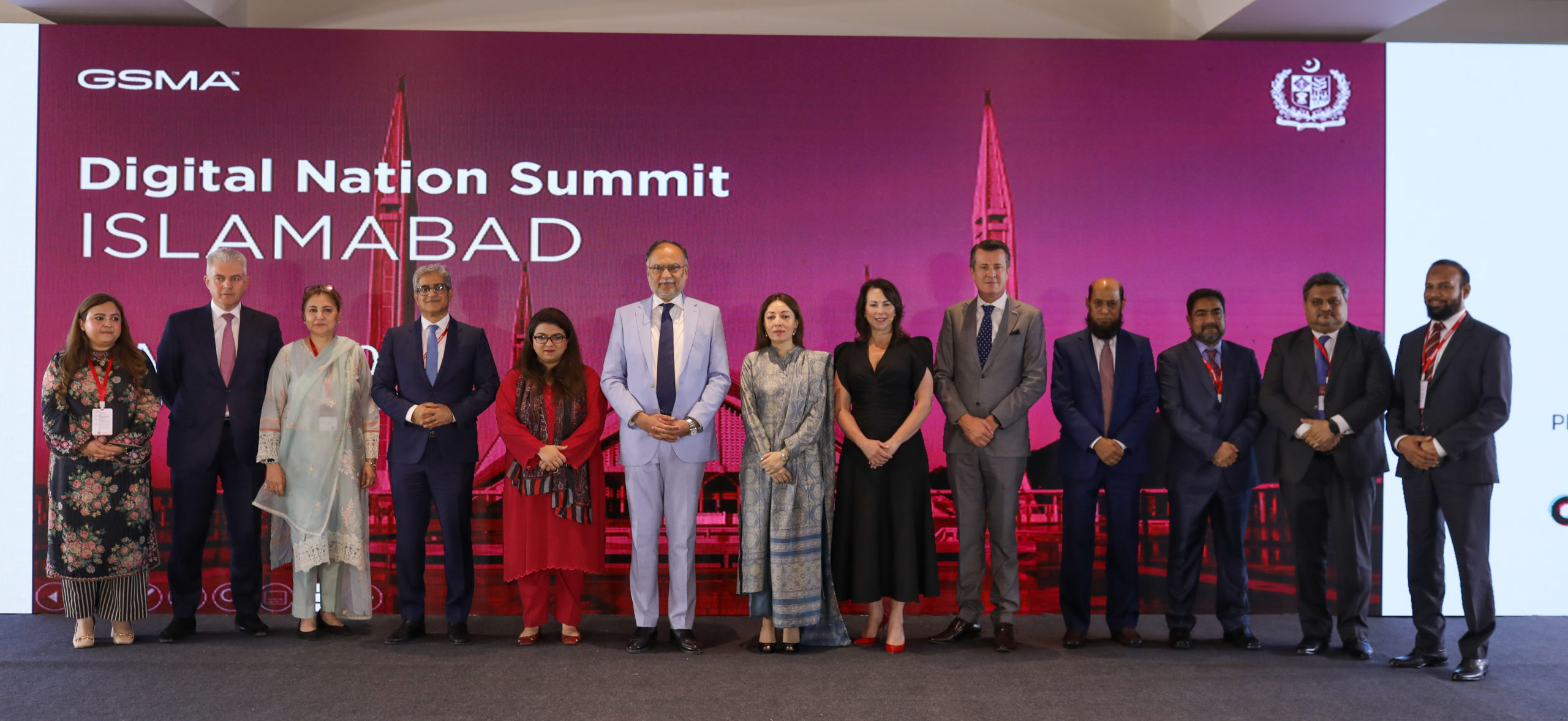The GSMA held its second Digital Nation Summit in Islamabad. It honored the Ministry of Information Technology and Telecommunication. The Pakistan Telecommunication Authority (PTA) was also recognized. Pakistan’s mobile companies were thanked for their work. They helped grow the country’s digital future.
A new GSMA report was released at the summit. It is called Unlocking Pakistan’s Digital Potential: Reform, Trust and Opportunity. The report offers policy ideas. These ideas can help Pakistan close its mobile internet usage gap. It aims to make Pakistan a leader in Asia.
Julian Gorman, GSMA Head of Asia Pacific, spoke at the summit. He shared the report’s main points. Mobile technology can boost Asia’s economies. It could add $1.4 trillion to GDP by 2030. However, Pakistan might miss out. Most people have mobile broadband and smartphones. But fewer people use the mobile internet. This leaves a large usage gap. It is the biggest in the region.
Gorman stated that Pakistan has talent. It has ambition and vision. But policy issues hold it back. High spectrum prices hurt investment. Taxes on the telecom sector are also high. Regulatory uncertainty adds to the problem. Pakistan needs affordable, good internet now. Gorman said reform is vital for growth. It is needed for inclusion and competition.
Key Findings
- Spectrum allocation opportunity: Pakistan has one of the region’s lowest allocations of IMT spectrum, and its planned 5G multiband auction has been delayed.
- Need for sustainable spectrum pricing: Across the Asia Pacific, spectrum cost-to-revenue ratios rose from 3% in 2014 to 9% in 2023; excessive pricing in Pakistan threatens coverage and speeds.
- Scope to rationalise mobile sector taxation: Combined taxes on mobile usage reach 33%, among the highest in the region, increasing consumer costs and suppressing demand.
- Addressing the mobile usage gap: 52% of Pakistanis live under mobile broadband coverage but do not use it, reflecting barriers of affordability, literacy, and trust.
- Gender progress: Women’s mobile internet adoption climbed from 33% to 45% in 2024 – the largest gain in any country surveyed – showing that targeted efforts can work.
- Addressing rising digital fraud to build trust: Rising digital fraud is eroding trust; Pakistan’s participation in the GSMA APAC Cross-Sector Anti-Scam Taskforce (ACAST) is a positive step but needs scaling.
Pakistan’s Federal Minister for IT & Telecom, Shaza Fatima Khawaja, commented. She said Pakistan is shaping the digital age. The Ministry of IT & Telecom is building a strong digital system. Innovation drives growth. Technology helps every citizen.
She mentioned Pakistan’s achievements. It has a WebTrust-audited National PKI. The ITU ICT Development Index improved by 14%. Telecom subscribers exceed 200 million. Broadband users grew by 10 million. Internet use rose 24%. Digital access is expanding fast.
New projects support this growth. AI-enabled data centers are launching. Cloud infrastructure is being built. Software Technology Parks are open. New submarine cables are deployed. 17 telecom projects added fiber optics. These reach over 500 underserved areas. The ministry is committed to connection and inclusion. Their goal is to include everyone in Pakistan’s digital progress.
Policy Priorities
To help further progress Pakistan’s digital acceleration, the GSMA report outlines policy opportunities to speed advancement.
First, spectrum reform is needed. Spectrum prices should balance revenue. They must also consider affordability and network expansion. The report suggests releasing more mid-band frequencies. A clear, multi-year roadmap is recommended. Spectrum sharing and trading should be allowed. This helps operators use bandwidth better.
Second, tax policies should support digital goals. Lower taxes on mobile use would help. Reducing duties on devices and services is also advised. This will lower prices for customers. It will also boost demand. Tax breaks for infrastructure investment can attract money. These incentives can drive innovation.
Third, building digital trust and inclusion is essential. Expanding anti-fraud initiatives like the GSMA’s APAC Cross-Sector Anti-Scam Taskforce and accelerating adoption of GSMA Open Gateway APIs will strengthen security, while dedicated digital literacy programmes, especially for women and rural communities, can help close Pakistan’s 52% usage gap.
Finally, the report recommends streamlining regulation to foster resilience and innovation. Creating a more predictable and resilient regulatory environment by reviewing network continuity policies, accelerating approval of “Always-On Network” solutions, and adopting technology-neutral, innovation-friendly rules would create a more predictable environment in which 5G, IoT, and future services can flourish.
“Asia Pacific is racing ahead on 5G, IoT, and AI. With the right policy environment, Pakistan is well-positioned to lead regional innovation in areas such as developer services and IT outsourcing,” added Julian Gorman. “Our report sets out a clear roadmap; the time to act is now.”
For more daily updates, please visit our News Section.

